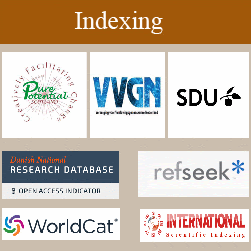Correlation of vitamin D with osteoporosis
Author(s):
Sander Kola, Irena Kola, Kristina Gjoka, AnxhelaGjini
Introduction: Osteoporosis is a disease of bone metabolism, which is characterized by the silent and progressive reduction of bone density and is followed by a risk for fractures that can be fatal to the patient. The causes leading to this disease are endogenous and exogenous, but it is mainly related to the decrease in vitamin D level.
Aim: Our study is the review and presentation of a more complete picture regarding osteoporosis and the effect of vitamin D on osteoporosis.
Material and Method: Is a literary review of studies published in PubMed, Medline, WebMD, on the topic of vitamin D and its correlation with osteoporosis, an essential indicator with a wide range of applications in diagnosis and analysis of this illness. The scientific studies referenced, highlight the effectiveness of diagnosing osteoporosis through a bone density scan with a dual energy X-ray (DEXA), which provides the most accurate assessment to date on bone density. According to ‘International Osteoporosis Foundation’ statistics conducted for EU countries, Switzerland, UK the estimated number of individuals with osteoporosis above 50 years old in 2019 was 32 million, from which 25.5 million were of the gender female and 6.5 millionmale, deriving the conclusion that females are more prone to osteoporosis. Apart from diagnosis of osteoporosis,in the studies referenced,of great importance is the role of vitamin D levels and its correspondence with osteoporosis. In a study by Michael Holick Vitamin D deficiency. vitamin D deficiency is defined by concentration of 25(OH)D less than 10ng/mL and an insufficiency of 20-30 ng/mL. At last, treatments and recommendations for osteoporosis regarding vitamin D deficiency have elaborated to supplementary diets, bisphosphonates treatments and even hormone replacement therapy.
Conclusion: 25-OH-Vitamin D is essential for vitamin D status. To prevent the rapid progress of osteoporosis, factors that need immediate attention such as diet, lifestyle and an early diagnosis through DEXA are to be a priority, especially in risk patients.



